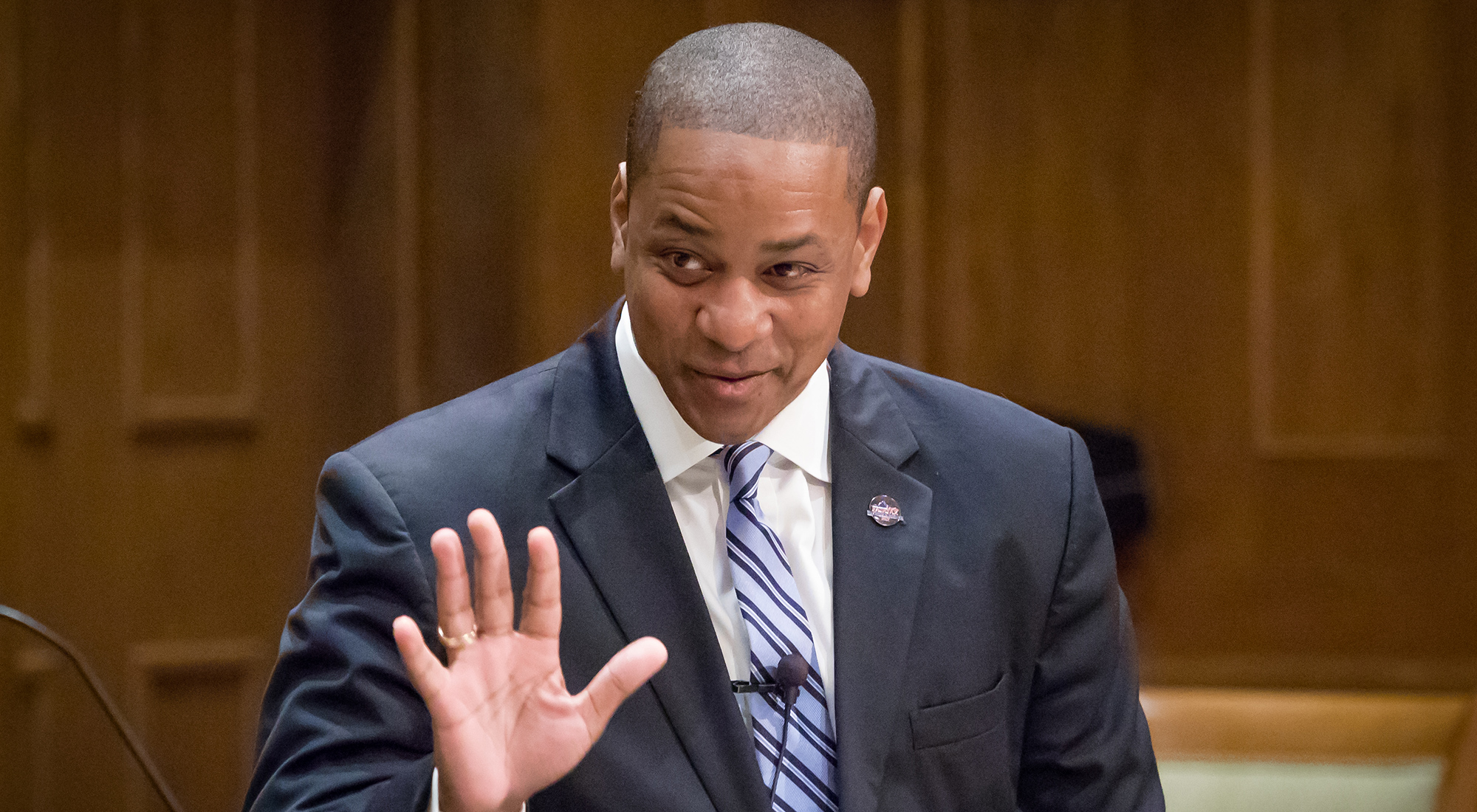In their first face-off in one of America’s most competitive midterm elections, Republican Congresswoman Barbara Comstock (VA-10) and Democratic challenger State Senator Jennifer Wexton debated in a match that outlines the narrative of resistance versus results. Democrats are attempting to takeover the Northern Virginia district that stretches from Loudoun County and parts of Fairfax and Prince William counties in the east to Clarke and Frederick counties in the west, a seat that has remained Republican for 38 years.
During the 90-minute debate, organized by the Loudoun County Chamber of Commerce, in was said to be heavily scripted by many, with Wexton reading many of her answers from notes and occasionally stumbling, according to The Washington Post.
Unsurprisingly, the two candidates split sharply on the Tax Cuts and Jobs Act, signed by President Donald Trump in December, which lowered the corporate tax rate from 35 percent to 21 percent. The federal tax overhaul has allowed companies to invest more in equipment, new markets, and employee bonuses and wage increases, leading to continuous economic growth that had the gross domestic product (GDP) increasing by over four percent last financial quarter.
“When we have an economy that is booming the way it is now, it makes every issue that we have to deal with – poverty, homeless, social security, Medicare – easier when we have more money coming in,” Comstock said as reported by The Loudoun Times-Mirror.
The effects of the Republican-led tax reconfiguration has led to a $552 million tax surplus for Virginia. Furthermore, Comstock said she is going to work to expand and make permanent the personal income tax cuts that were part of the Trump package that expire by 2027, as well as increase tax cuts for small businesses.
However, Wexton attacked Comstock for her support of the Trump economic plan, which she said primarily benefits the rich.
“In Virginia we can’t keep printing money like our friends across the Potomac do,” Wexton said. “Our tax priorities need to benefit the middle class and encourage business and wage growth. My opponent does neither.”
“You all are business people,” Wexton charged against the debate crowd. “You know that’s not a sustainable model.”
As a self-described “tax and spend liberal,” Wexton has pledged to roll back the Republican-led tax overhaul, which has helped all taxpayers in Virginia’s Tenth District keep more of the money they rightfully earned.
Additionally, during the debate Wexton continuously said that Comstock voted for a pay freeze for federal workers, which is “incorrect,” Comstock said. She explained after the debate that the spending plan she voted for over the summer would have kept the federal pay bump in place.
Comstock fervently supports federal workers, thousands of whom are her constituents in suburban area of Washington, D.C. In a district with 35,500 federal workers, Comstock said she is the only member of Congress from the capital region who has never voted for a government shutdown.
One area of agreement between the two candidates was on tariffs. Comstock declared herself a “free trader” who has always opposed tariffs. President Trump’s duties have led to Virginia farmers having to sell their produce at lowered prices as the market as been flooded by domestic growers and producers who cannot sell as much internationally, especially with apples, a large industry in the western portion of the congressional district.
Comstock said she has worked with farmers in the district to utilize bailouts offered by the government to cushion the economic blow. “This is a short-lived negotiating posture…so that we get better long-term deals,” she said.
Wexton hit back hard saying that farmers “don’t want a bailout from the government. They want to sell their goods on the open market.” She added, “President Trump has needlessly and recklessly imposed tariffs that are hurting Americans.
On the topic of immigration, Wexton railed against nationwide rhetoric of Republicans “sitting on their hands” while families were separated at the border – an issue that stems back to President Bill Clinton. However, Comstock to a district-first approach to the issue and how she has worked to make sure that residents are kept safe from transnational gangs like MS-13, which have plagued the area for years. She introduced the Criminal Alien Gang Member Removal Act to target the aforementioned groups, expanding the authority of the federal government to deport or detain non-citizen immigrants suspected of gang activity.
During the Democratic primary, Wexton slammed the measure during an event, calling it a move of “fearmongering and race-baiting.” Though, right after Wexton clinched the nomination, she recanted her previous statements regarding the bill, saying that she now supports the legislation.
Commenting on the bill she formerly called “racist,” Wexton stated, “I support giving resources to law enforcement to do what they need to do.”
At a time when the transportation grid in the Northern Virginia area is becoming a bigger issue affecting a wide array of constituents, Comstock relayed a bill she is sponsoring that would extend federal funding for the Metro system at current levels, scaling back an increase in funding she proposed in December. Regardless, the trend for Metro seems to be edging towards privatization as the ill-maintained system is faced with long-term threats, including continuous stagnant ridership and unfunded pension and healthcare commitments made to current and future retirees — a tab of $2.8 billion that increases day by day.
Wexton raised an issue Democrats have previously lobbed at Comstock — a vote she made while in the House of Delegates against a tax increase that raised funds to build the Silver Line.
“That didn’t stop her from showing up at the ribbon-cutting and taking credit for it,” Wexton said.
For Comstock, throwing money at a mismanaged, broken system isn’t the answer – it requires new management, pension reforms, and different financial programs, all of which were included in the bill.
Amid the potential for a summer strike on the part of Metro workers during the MLB All Star Week hosted in Washington, Wexton decided to stay silent on reforms to Metro and even mulled over the possibility of using the strike as a campaign platform had it occurred. It could have something to do with the two $5,000 checks Maryland-based Amalgamated Transit Union (ATU) Local 689, the largest Metro transit labor union, wrote to Wexton’s campaign.
For healthcare reforms at the federal level, Wexton promoted her vote this year to expand Medicaid in Virginia through state actions by the Obama-era Affordable Care Act (ACA).
Comstock suggested a “piece-by-piece, change and reform” approach to reforming the law.
Again attacked on her position by Wexton, Comstock responded, “My record is one of getting results on your priorities…results, not resistance.”
That is the name of the game between Wexton and Comstock – resistance v. results.





